Health & Medicine
-
 Health & Medicine
Health & MedicineLong-lasting shots work better than daily pills to prevent HIV in at-risk women
A more discreet HIV prevention method — a shot once every eight weeks —could help to boost use in women at risk.
-
 Health & Medicine
Health & MedicineCoronavirus shutdowns don’t need to be all or nothing
Governments are implementing more targeted restrictions like limiting restaurant capacity to slow a fall surge. Research suggests they could work.
-
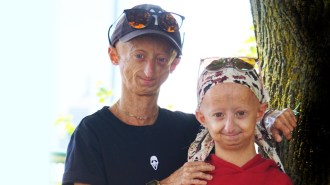 Health & Medicine
Health & MedicineThe FDA has approved the first drug to treat the rapid-aging disease progeria
Children with a rare genetic disorder called progeria age quickly and often die before they are 15. A newly approved drug may give them more time.
-
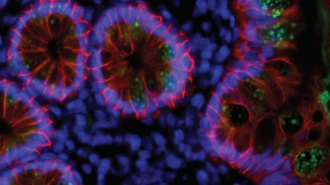 Health & Medicine
Health & MedicineImmunity to COVID-19 may persist six months or more
Even after recovery, the body continues to improve its antibody response to the coronavirus — perhaps thanks to viral bits hiding in the intestine.
-
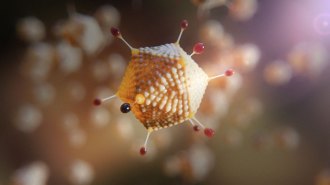 Health & Medicine
Health & MedicineOxford and AstraZeneca say their COVID-19 vaccine works too
A third major vaccine, which may be easier to distribute than others, appears to prevent disease and maybe transmission of the coronavirus.
-
 Health & Medicine
Health & MedicineHere’s why COVID-19 vaccines like Pfizer’s need to be kept so cold
Both Pfizer and Moderna built their vaccines on RNA. Freezing them keeps their fragile components from breaking down.
-
 Health & Medicine
Health & MedicineNew Pfizer results show its COVID-19 vaccine is nearly 95% effective
With final results – including showing its vaccine is 94 percent effective in the elderly – Pfizer is poised to request emergency use authorization.
-
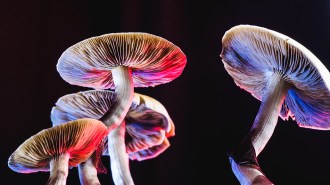 Neuroscience
NeurosciencePsilocybin may help treat depression, a small study finds
Researchers found that a compound in psychedelic mushrooms eased depression symptoms, but larger studies are needed.
-
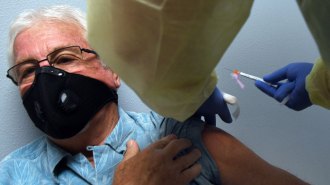 Health & Medicine
Health & MedicineModerna says its COVID-19 vaccine is nearly 95 percent effective
Another coronavirus vaccine appears to be very effective in preventing people from developing COVID-19 symptoms.
-
 Health & Medicine
Health & MedicineMeasles has come back with a vengeance in the last several years
The steep number of measles cases in 2019 doesn’t bode well for 2020, considering disruptions due to the COVID-19 pandemic.
-
 Anthropology
AnthropologyBolivia’s Tsimane people’s average body temperature fell half a degree in 16 years
A new study echoes other research suggesting that people’s average body temperature is lower today than it used to be.
By Sujata Gupta -
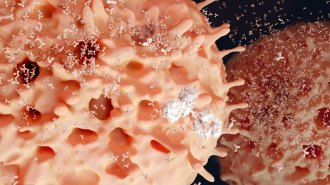 Health & Medicine
Health & MedicineProtecting the brain from infection may start with a gut reaction
In mice, immune cells in the meninges are trained to battle infections in the gut before migrating to the brain.